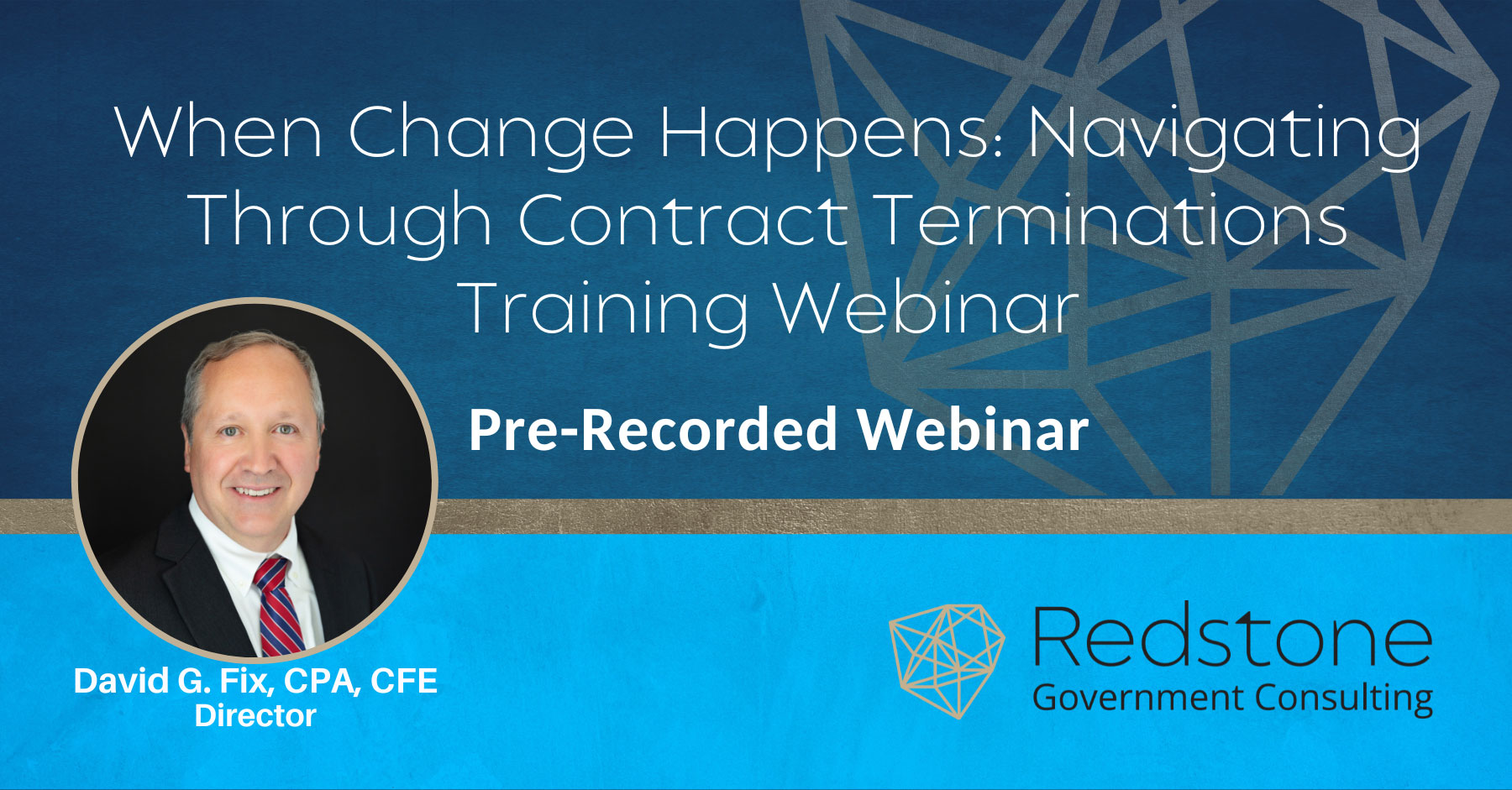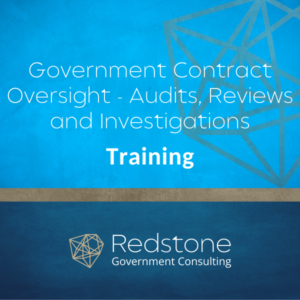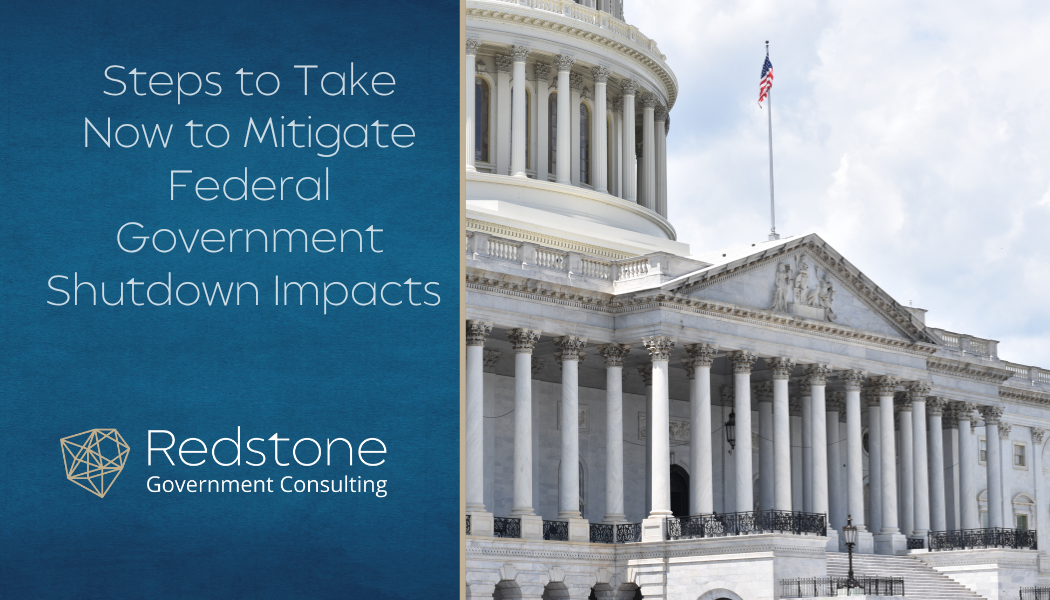Overview
Government contracting is not always straight-forward. Contracts may require changes to scope and price, or worse, termination before the contract is complete. This process is complex and different actions and remedies are required for each situation. Whether you are dealing with a REA or a Disputes claim due to a change to your contract (change to the general scope requiring an equitable adjustment in price, delivery schedule, or both, which result in contract modification), a Termination for Convenience (T4C) where the government can elect to stop the contract, or a Termination for Default (T4D) where it is being alleged your company’s performance is not in accordance with contractual requirements, Redstone GCI can assist. Our experts help you through the proposal preparation process, guide you through your entitlements to certain expenses, and review the end proposal prior to audit to reduce the risk of rejection or questioned costs.





























